Evaluating Country Programmes - OECD Online Bookshop
Evaluating Country Programmes - OECD Online Bookshop
Evaluating Country Programmes - OECD Online Bookshop
Create successful ePaper yourself
Turn your PDF publications into a flip-book with our unique Google optimized e-Paper software.
<strong>Evaluating</strong> <strong>Country</strong> <strong>Programmes</strong><br />
36<br />
Box 1.7. Recommendations for good practice<br />
in <strong>Country</strong> Programme Evaluation<br />
– The terms of reference (ToR) for a CPE should clearly state the purposes (input to<br />
country planning) or provide a more general agency review of “lessons learned”);<br />
the timing; the criteria to be used; and the ways in which the findings are to feed<br />
into policy or practice (approval, dissemination and follow-up procedures).<br />
– The ToR should clearly specify the goals against which country programme success<br />
or failure must be judged (e.g. poverty reduction, growth in certain sectors).<br />
These goals may be those of the individual projects; of the country programme (if<br />
a country strategy is in existence); or of the agency as a whole. If the CPE is to<br />
examine more than one level of goals, or if goals have changed over time, it<br />
should address specifically the complementary or contradictory relationships<br />
between goals at different levels.<br />
– The terms of reference for CPEs should generally require the evaluators to<br />
consider the influence of systemic issues i.e. policy and administrative<br />
constraints affecting the programme, on both the donor and recipient sides.<br />
Appropriate expertise, time and access should be allotted to these tasks.<br />
– The identification of valid comparators, essential to all evaluation, is harder<br />
at the country programme level. If a number of donors were to carry out CPEs<br />
jointly, then this would provide each with benchmarks against which to judge<br />
their own performance. Even if it is hard to obtain a valid comparator for the<br />
full country programme, evaluators should seek to obtain programme, sector<br />
or project evaluation reports from other donors. This will allow at least some<br />
elements of country programme performance to be benchmarked.<br />
– Detailed analysis of impact is always desirable but may be beyond the scope of<br />
some CPEs. Donors should design CPEs on the basis of what is feasible and<br />
justifiable in a given situation: when impact evaluation is impossible or can only<br />
be obtained at a prohibitive cost, this should be acknowledged and the goals of<br />
the CPE limited, realistically, to a rigorous examination of the relevance,<br />
efficiency and sustainability of the country programme.<br />
– Mechanisms to strengthen donor-recipient partnership include: consultation<br />
prior to design of ToR; partner-country or joint partner-donor advisory groups;<br />
presentation of draft findings to stakeholder groups for review; and invitations for<br />
a formal partner reaction to draft and final documents. Whoever manages the<br />
CPE, the team carrying out the study should consist of nationals of both the donor<br />
and recipient countries.<br />
– The widest possible stakeholder consultation and involvement is required in CPEs.<br />
In addition to informal interviews, consideration should be given to using customer<br />
surveys, focus group discussions and/or field-based participatory methods.<br />
– Reporting and follow-up procedures should be specified in advance. Normally, CPEs<br />
will be discussed either by senior management, by the governing body of an institution,<br />
or by the donor Parliament. There is a strong case for circulating them to other<br />
country programmes run by the donor. Unless there are specific and compelling reasons<br />
to do otherwise, they should also be made available to the taxpaying public,<br />
other donors working in the same country and implementing partners such as NGOs.<br />
<strong>OECD</strong> 1999


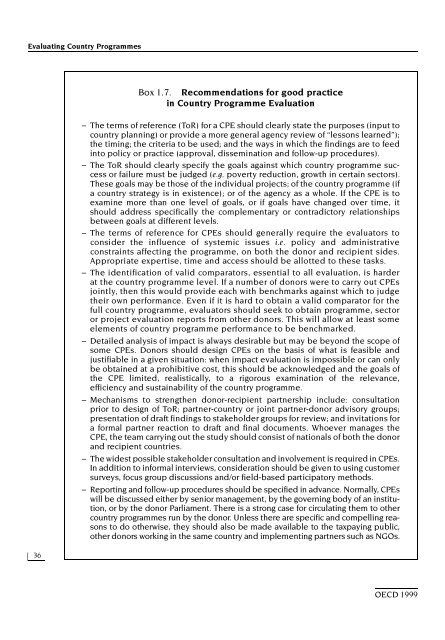


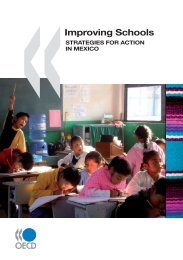
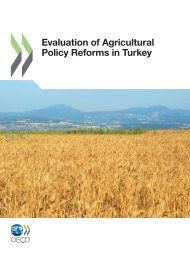
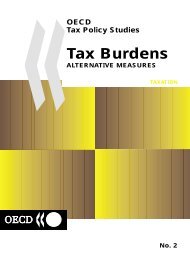
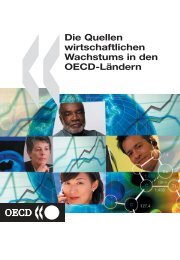
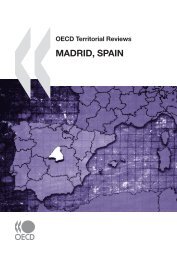



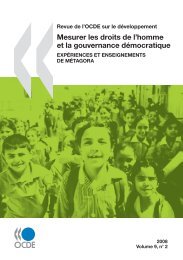
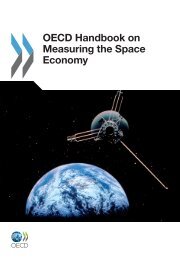

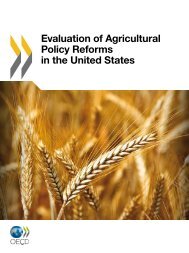
![CQE=U]^\]Z: KAZAKHSTAN - OECD Online Bookshop](https://img.yumpu.com/3915768/1/190x253/cqeuz-kazakhstan-oecd-online-bookshop.jpg?quality=85)